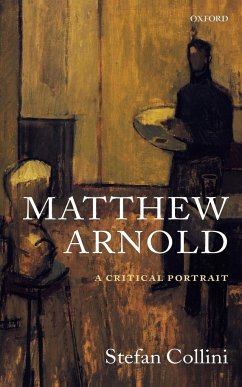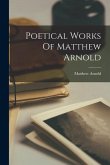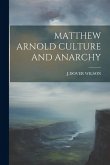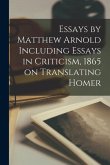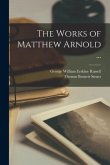Matthew Arnold (1822-88), the leading man-of-letters of the Victorian age, has been the decisive influence on modern thinking about literature and criticism and his work has become an inescapable cultural reference point today. In this stylish and entertaining book Stefan Collini examines the whole range of Arnold's literary, social, and religious criticism as well as his poetry, placing them in the context of the major intellectual controversies of the nineteenth century. By attending to the distinctive power of Arnold's writing to charm, tease, persuade, and irritate, the book provides a brilliant characterization of the tone and temper of his mind. This edition includes a substantial Afterword which reflects on Arnold's continuing polemical significance and his role in contemporary cultural debate.
Hinweis: Dieser Artikel kann nur an eine deutsche Lieferadresse ausgeliefert werden.
Hinweis: Dieser Artikel kann nur an eine deutsche Lieferadresse ausgeliefert werden.

